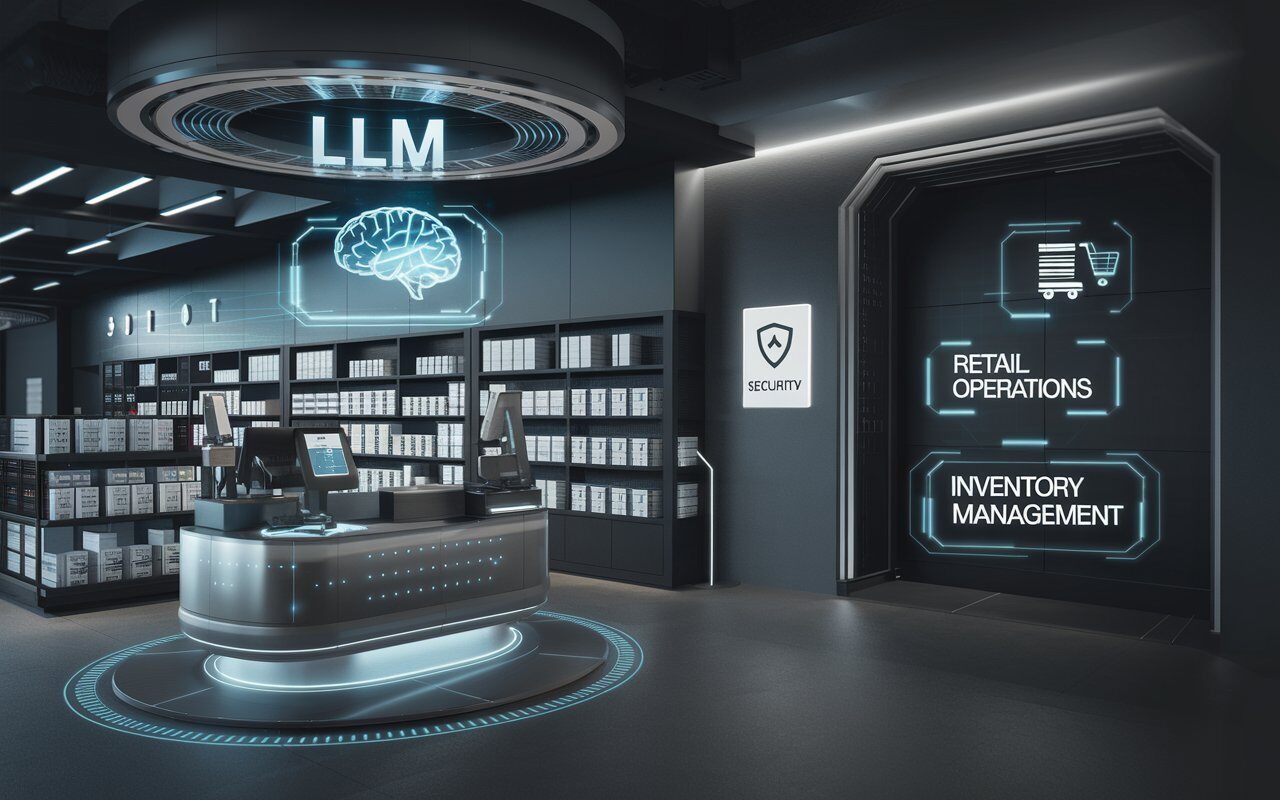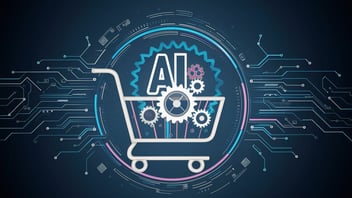Introduction
The retail industry is rapidly evolving as companies adopt advanced technologies to enhance customer experiences and streamline operations. Among these innovations, large language models (LLMs) are emerging as transformative tools with applications that extend from customer service chatbots to data-driven marketing and inventory optimization. With their ability to understand complex language patterns and generate contextually relevant responses, LLMs provide retailers with unique capabilities that traditional AI solutions cannot match. This article explores how LLMs are reshaping retail operations, focusing on key areas such as customer engagement, inventory management, and data security, and considers the challenges and future potential of integrating LLM technology in retail.
Harnessing LLM-Powered Chatbots for Retail Customer Engagement
LLM Chatbots vs. Traditional AI Solutions in Retail
LLM-powered chatbots excel in customer engagement due to their advanced conversational abilities. They adapt to various customer queries with precision, which is essential for handling complex inquiries. In contrast, traditional rule-based AI is often limited to straightforward tasks, lacking the flexibility that LLMs provide.
However, simpler AI solutions may still be useful for tasks where complex language understanding isn’t required, and they often offer cost advantages. Retailers must consider their operational needs when choosing between LLM chatbots and more basic AI technologies.
Top LLM Applications Beyond Chatbots
Inventory Management Optimization: LLMs analyze vast datasets to identify demand patterns, helping retailer’s stock efficiently. Unlike traditional methods that rely heavily on historical data, LLMs incorporate real-time insights, such as social media trends and economic indicators, to
refine inventory forecasting and reduce waste.
Sentiment Analysis: Analyzing customer feedback, LLMs provide nuanced insights into customer sentiments. Retailers can identify common themes in customer reviews, which helps them
make data-informed adjustments to products and services, ultimately boosting customer satisfaction.
Addressing Data Privacy and Security in LLM-Driven Retail Systems
Integrating LLMs in Long-Term Retail Strategy
For maximum impact, integrating LLM technology within long-term retail strategies is essential. Rather than using LLMs as stand-alone tools, retailers should align them with broader business objectives, such as
enhancing customer relationships and driving digital transformation. Regularly assessing LLMs’ performance against key metrics allows businesses to adapt and optimize their use.
Challenges in Deploying LLM Chatbots
Deploying LLM chatbots can present technical challenges, including integration with existing retail systems. Chatbots must be trained to handle diverse linguistic nuances and regional dialects, requiring extensive datasets that reflect the target audience’s language. Retailers should allocate resources to train these chatbots for
seamless and accurate customer interactions.
Future of LLM-Powered Retail
LLMs hold the potential to redefine retail by making operations more efficient and customer interactions more engaging. However, to fully realize this potential, retailers must carefully balance innovation with data security, seamless integration, and continuous evaluation of AI tools. By doing so, retailers can create a resilient digital presence that adapts to consumer needs.
Conclusion
As the retail landscape continues to shift towards digitalization, LLM technology offers unprecedented opportunities for retailers to
enhance their customer relationships, optimize operational efficiencies, and strengthen data security. By carefully implementing LLMs in alignment with long-term strategic goals, retailers can deliver more personalized and responsive services while building trust with their customers. Despite the technical challenges in deploying LLM-based chatbots and integrating these systems with legacy infrastructure, the potential of LLMs to redefine retail is immense. Looking ahead, the retailers who successfully harness the power of LLMs will be well-positioned to navigate the complexities of a competitive market and cater to the evolving needs of today’s consumers.
Facilitating AI Integration with Pacific Data Integrators (PDI)
Integrating AI and Large Language Models (LLMs) into retail can seem daunting, but with Pacific Data Integrators (PDI), it becomes a streamlined and supported journey. Partnering with PDI ensures a seamless transition and enduring success, turning challenges into opportunities. Discover how PDI's tailored retail solutions can transform your business by consulting with our experts today.
You can book a consultation today by visiting us at PDI.
Posted by PDI Marketing Team
Pacific Data Integrators Offers Unique Data Solutions Leveraging AI/ML, Large Language Models (Open AI: GPT-4, Meta: Llama2, Databricks: Dolly), Cloud, Data Management and Analytics Technologies, Helping Leading Organizations Solve Their Critical Business Challenges, Drive Data Driven Insights, Improve Decision-Making, and Achieve Business Objectives.






